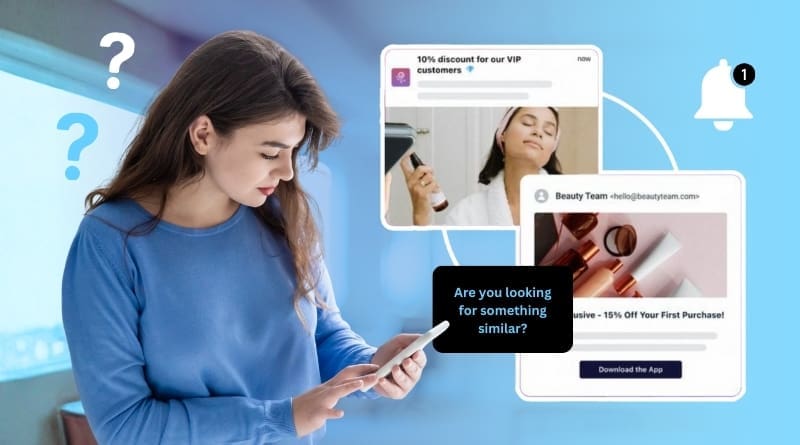The New Age of Member Expectations: How AI Is Transforming Health Insurance Support
Why is the healthcare industry under pressure in 2025?
Technology is now the lifeline of modern healthcare. Instead of being a support system, digital tools are becoming the backbone of care delivery.
- Accessibility: Telemedicine brings care to patients in remote and underserved areas, bridging the rural–urban divide.
- Efficiency: Digital records, AI tools, and automation reduce paperwork, accelrate processes, and improve accuracy.
- Personalization: AI and machine learning analyze patient data to create individualized care pathways, reducing trial-and-error treatments.
- Cost Reduction: Virtual care, remote monitoring, and preventive digital health interventions help lower hospital admissions and cut overhead costs.
What role is technology playing in healthcare transformation?

Technology is now the lifeline of modern healthcare. Instead of being a support system, digital tools are becoming the backbone of care delivery.
- Accessibility: Telemedicine brings care to patients in remote and underserved areas, bridging the rural–urban divide.
- Efficiency: Digital records, AI tools, and automation reduce paperwork, accelrate processes, and improve accuracy.
- Personalization: AI and machine learning analyze patient data to create individualized care pathways, reducing trial-and-error treatments.
Cost Reduction: Virtual care, remote monitoring, and preventive digital health interventions help lower hospital admissions and cut overhead costs.
What are the top healthcare trends in 2025?
- Adoption of telemedicine has reached 80% globally, making it the preferred channel for managing prescriptions and minor illnesses.
- The global telehealth market is projected to hit $55 billion by the end of 2025, with a dramatic increase in patient and provider satisfaction compared to pre-pandemic levels.
- According to Deloitte, 65% of patients now consider virtual care more convenient than in-person visits, with demand outpacing in-person options across major health systems.
- The IoT and virtual hospital market is forecasted to be valued at $20.34 billion in 2025, growing at an annual rate of 18.4%, largely driven by remote patient care, digital enablement, and connectivity.
- Over 25% of consumers are willing to switch providers for better access to remote monitoring tools, and remote patient monitoring reduces hospital admissions by 38% and ER visits by 51%.
- Remote patient monitoring (RPM) receives 80% favorable support among Americans, and 88% of healthcare providers believe RPM improves outcomes.
- The AI-driven remote patient monitoring market is growing at 27.5% CAGR and is anticipated to reach a value of $8.43 billion by 2030.
- Hospitals using RPM and AI report patient satisfaction scores upwards of 90%, with significant improvements in both acute and chronic disease management due to AI-powered devices and real-time data sharing.
- Nearly 30 million patients globally used remote patient monitoring devices in 2024, up from 23 million in 2020.
- Use of wearables such as smartwatches and biosensors for health tracking and chronic disease management has doubled in the last five years and is now involved in 30% of virtual medical consultations.
- According to Deloitte, satisfaction and loyalty are rising as providers get paid for outcomes rather than volume, aligning financial incentives with patient empowerment and coordinated care delivery.
- Health systems embracing value-based care models see record improvements in patient engagement, trust, and overall care continuum.
How serious is the cybersecurity risk in healthcare?
Cybersecurity has become one of the most critical threats facing healthcare in 2025. With the industry’s growing reliance on digital records, cloud platforms, and connected devices, healthcare systems have become prime targets for cybercriminals.
- Rising Breach Costs: Healthcare now has the highest average data breach costs of any industry, with each incident reaching $7.42 million. This creates both financial strain and reputational damage.
- Vendor Vulnerabilities: Third-party partners remain a weak link. Vendor-related breaches cost around $4.91 million, showing how interconnected ecosystems can multiply risks.
- Evolving Threat Landscape: Phishing, ransomware, and supply-chain attacks dominate the threat profile. By mid-2025, hacking had become the primary driver of breaches across healthcare.
Organizations must invest in AI-powered security, encryption, and zero-trust systems.
What healthcare challenges remain beyond technology?
Even with rapid digital adoption, healthcare still faces deep-rooted challenges that technology alone cannot solve:
- Physician shortages: Global demand for care far outpaces the supply of trained doctors, forcing heavier reliance on nurse practitioners and physician assistants.
- Digital divide: Older adults, rural communities, and low-income patients often lack internet access or digital literacy, limiting the benefits of telehealth.
- Trust deficit: Post-pandemic skepticism persists, with patients expecting greater empathy, transparency, and cultural sensitivity.
- Supply chain inefficiencies: Persistent issues in procurement, equipment shortages, and inventory mismanagement inflate costs and disrupt timely care.
How can your healthcare organizations prepare for the future?
To stay resilient and patient-centered, healthcare leaders must reimagine how care is delivered and supported:
- Adopt hybrid care models: Blend telemedicine with in-person visits to give patients flexibility and choice.
- Treat cybersecurity as patient safety: Invest in AI-driven monitoring, zero-trust frameworks, and workforce training to protect health data.
- Modernize procurement and supply chains: Use AI-powered systems to forecast demand, reduce waste, and prevent shortages.
- Balance AI with human care: Automate routine processes but keep clinicians focused on empathy, personalized care, and decision-making.
Why is UnifyCX the right partner for your healthcare transformation?
Healthcare organizations today need more than just technology; they need a partner who can combine efficiency, scalability, and empathy to deliver meaningful outcomes. That’s where UnifyCX comes in.
- End-to-end patient support: From appointment scheduling and telehealth onboarding to claims inquiries and troubleshooting, we ensure patients get the assistance they need across every channel.
- Operational excellence: Our back-office process management reduces administrative burdens so providers can focus on delivering quality care.
- Data-driven intelligence: With AI-powered analytics, we track KPIs in real time, spot trends early, and help organizations proactively address issues.
- Human-centered care at scale: By blending advanced technology with skilled teams, we create experiences that are efficient, personal, and empathetic.



